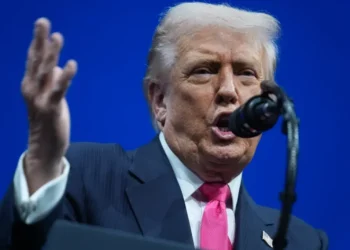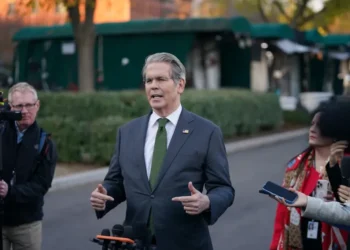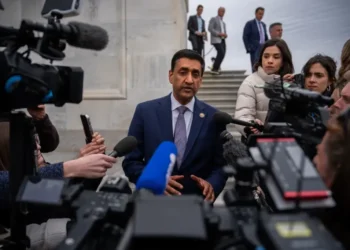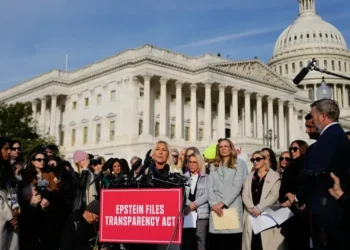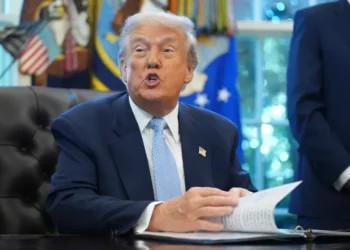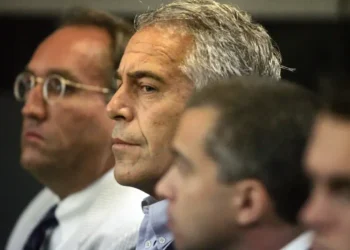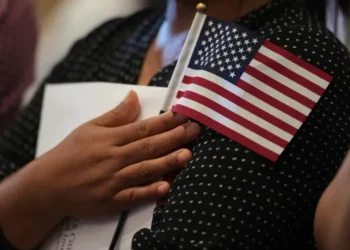New Epstein Disclosures Trigger Global Repercussions for Academic, Political, and Royal Institutions
The legacy of Jeffrey Epstein’s crimes is expanding once again as newly released U.S. Justice Department files shed light on his connections to academics, politicians, global institutions, and members of royalty. The disclosures, mandated by new legislation signed by President Donald Trump, have renewed scrutiny of powerful individuals who interacted with Epstein before and after his 2008 conviction. The revelations are prompting resignations, internal inquiries, and questions about how institutions overlooked his conduct for so long.
The Expanding Human and Political Cost of the Epstein Scandal
Epstein’s crimes left a trail of harm spanning continents. According to the U.S. Justice Department, more than 1,000 victims have been identified, a figure illustrating the scale of exploitation that persisted for years. While Epstein died in jail in 2019, the consequences of his actions continue to reach academics, global politicians, financiers, and members of the British royal family.
Public interest intensified this week after President Trump—who was once friendly with Epstein before a reported falling out in the early to mid-2000s—signed a bill compelling the Justice Department to release large portions of its files. The decision followed political pressure in Congress, including from members of the president’s own party. International media framed the move as a rare public rebuke of Trump within a political landscape marked by polarization.
Although the legislation mandates broad disclosure, some files remain shielded to protect victims and ongoing investigations. Trump has repeatedly stated he had no knowledge of Epstein’s crimes and committed no wrongdoing.
Harvard Confronts Fallout as Summers Faces Career Collapse
Epstein’s Academic Connections Trigger Institutional Accountability
Economist Lawrence Summers—former U.S. treasury secretary, ex-Harvard president, and a prominent public figure—was among the highest-profile names linked to the new disclosures. Emails released this week show that Summers maintained contact with Epstein years after the financier pled guilty in 2008 to soliciting prostitution from a minor. The exchanges included personal discussions in which Epstein referred to himself as Summers’ “wing man.”
The revelations led to immediate consequences. Summers stepped down from advisory and leadership roles at OpenAI, the Center for American Progress, and Yale University’s Budget Lab. Although he initially intended to continue teaching at Harvard, he later withdrew from those duties as well.
Harvard announced its own renewed review, citing previous findings from 2020 that Epstein visited the university’s campus more than 40 times after his plea deal. The institution confirmed he had access to an office and a research center he helped fund. Harvard accepted more than $9 million from him before his conviction and banned donations only afterward.
Summers, 70, previously left his role as Harvard president in 2006 following controversial comments about gender representation in science and math. His current situation, analysts note, may be the most damaging setback of his career.
British Royalty Faces Renewed Pressure Over Andrew’s Connection to Epstein
Mountbatten-Windsor Loses Title, Residence, and Public Standing
The scandal has long shadowed Andrew Mountbatten-Windsor, formerly known as Prince Andrew. New disclosures reinforce the timeline of his association with Epstein, including interactions after Epstein’s 2008 conviction. The fallout has now cost Andrew his royal title, his home on castle grounds, and his remaining public duties.
Queen Elizabeth II was once viewed as protective of Andrew, long rumored to be her favorite child. However, public pressure mounted after his 2019 BBC interview, widely criticized for its lack of empathy toward victims and implausible explanations regarding his relationship with Epstein.
Central to the controversy is Virginia Giuffre, who said Epstein trafficked her to Andrew when she was 17. A widely circulated photograph showed Andrew with his hand around her waist. Andrew denied wrongdoing and denied recalling the photograph, though he ultimately reached a settlement with Giuffre. She died by suicide earlier this year.
The ongoing scandal has created political and public-relations challenges for King Charles III, who is undergoing cancer treatment and is focused on stabilizing the monarchy for the next generation. He removed Andrew’s title and required him to vacate Royal Lodge, his longtime 30-room residence near Windsor Castle. Andrew has since moved to Sandringham, a more isolated estate.
Political Turmoil in Washington as Trump Battles Questions Over Epstein Files
The President’s Efforts to Contain the Issue Prove Unsuccessful
President Trump’s longstanding attempts to distance himself from Epstein resurfaced sharply when the Justice Department initially announced earlier this year—without warning—that it would halt further releases of Epstein-related files. The decision angered some Trump supporters who viewed disclosure as a campaign promise.
The backlash was swift. MAGA-aligned commentators accused Trump of shielding information, prompting the president to publicly criticize his own base, calling dissenters “stupid people” and “weaklings.” The controversy continued through July, with reporters repeatedly pressing him on his past association with Epstein.
Key political developments—including the end of a record 43-day government shutdown—did not quiet the debate. The issue escalated when congressional Democrats released their own selection of Epstein-related emails, including a claim that Trump “knew about the girls,” which he called a hoax.
Trump denied writing a reported birthday note to Epstein referenced by The Wall Street Journal and responded by filing a $10 billion defamation suit against the publication. He later directed the Justice Department to investigate Democrats tied to Epstein.
The president ultimately reversed course on the files when it became clear that only one Republican was willing to vote against their release. After signing the bill, he insisted the decision was his alone, though the political pressure was evident.
A Growing Crisis of Trust Across Borders and Institutions
Global Entities Continue to Wrestle With Questions of Accountability
The Epstein scandal continues to erode public trust in institutions—universities, governments, financial entities, and media organizations—that had relationships with the disgraced financier. Analysts say the newly released documents mark only the beginning of a new phase of scrutiny.
As additional files surface over the coming weeks, more disclosures are expected to put pressure on leaders and organizations around the world. While Epstein is no longer alive, the consequences of his actions—and the decisions of those who associated with him—are still unfolding.
This article was rewritten by JournosNews.com based on verified reporting from trusted sources. The content has been independently reviewed, fact-checked, and edited for accuracy, neutrality, tone, and global readability in accordance with Google News and AdSense standards.
All opinions, quotes, or statements from contributors, experts, or sourced organizations do not necessarily reflect the views of JournosNews.com. JournosNews.com maintains full editorial independence from any external funders, sponsors, or organizations.
Stay informed with JournosNews.com — your trusted source for verified global reporting and in-depth analysis. Follow us on Google News, BlueSky, and X for real-time updates.


